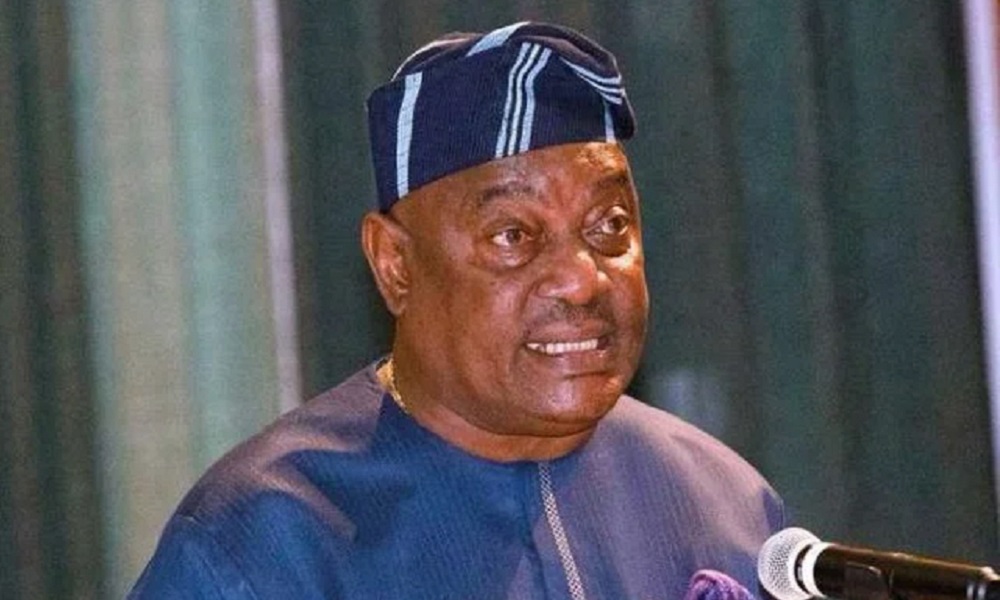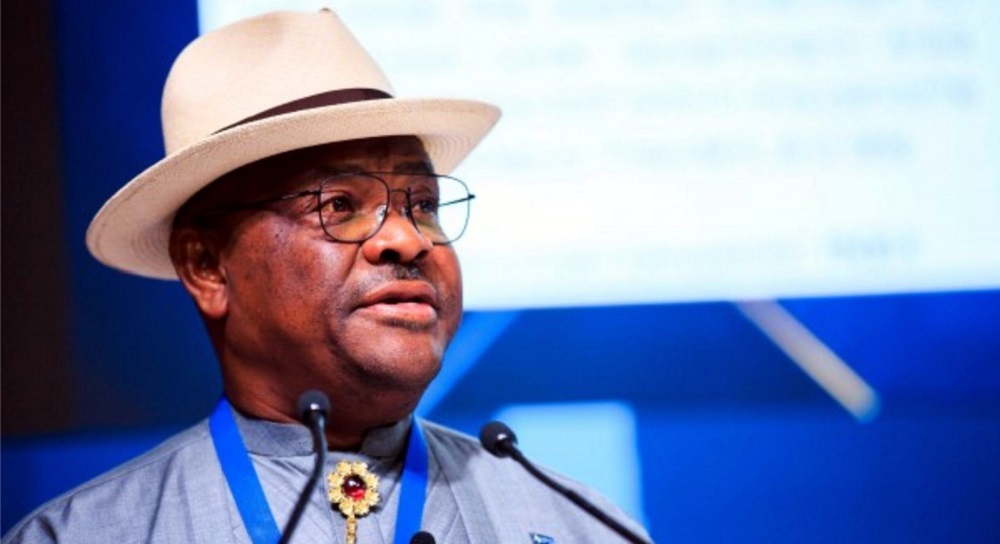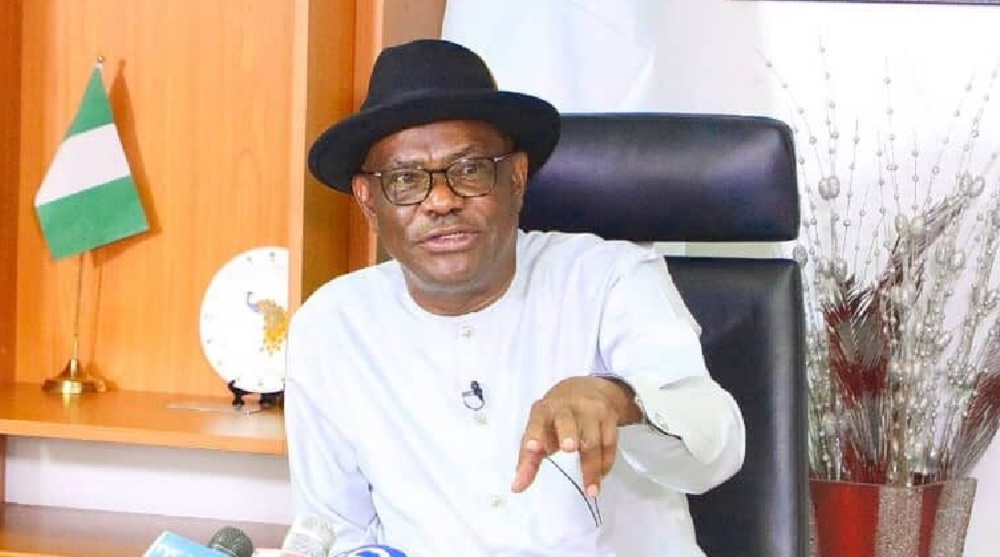News
Governors Should Not Be Allowed To Abuse State Police – PSC Boss, Arase

With talks about the establishment of state police gaining momentum in the country, the Chairman of the Police Service Commission (PSC), Solomon Arase, has warned state governors not to abuse state police.
Arase, the 18th Inspector General of Police, made this known on Inside Sources with Laolu Akande aired on Channels Television on Friday.
On Thursday, President Bola Tinubu and the 36 state governors met and considered the establishment of state police as a way to solve the escalating security challenges and the booming kidnap-for-ransom menace in the country.
Speaking on the state police alternative, Arase said, “Policing is local. Crime is environmental. State police is what we should be thinking about but then, there must be some safeguards put in place like is the governor going to be the one to appoint a commissioner of police and deputy commissioner of police?
“In order areas, the governor does not have control over the appointment of police commissioners. The truth about it is that of we are going to have state police, our political culture must be such that accommodate oppositions. Most of our governors, if they have control over police apparatus, their oppositions won’t be able to campaign anywhere.”
The police commission boss said there should be laws to check the excesses or otherwise of governors who abuse state police. He suggested that members of the civil society organisations, lawyers of repute, traditional rulers, religious leaders should be empowered to appoint police commissioners under the state police system.
He lamented that crimes will fester in a country where there are no consequences for crimes.
“We want to see more of prosecution; prosecution is a deterrence to others who want to go that route. The number of arrests in the past eight years is quite huge but it is not commensurate to the prosecution.
“You cannot attract investment in a place where there is no consequence for crimes committed,” he said.
He said technology should be used to aid or supplement the deficiency in manpower within the various security agencies.
He said Police-public partnership should be encourage and a bill should be passed that having closed-circuit television will be a mandatory requirement of public buildings like residential estates, shopping malls and the likes.
Arase said the government should embark on mass recruitment into the security agencies, train them along professional lines and skill acquisition in semi-formal areas for them to be financially independent. He said thereafter the trained pool can be made reservists and be called upon when the country needs extra hands to combat security challenges.
He reminded the President to actualise one of his campaign promises on mass recruitment into the Force, saying that may be the solution to the country’s internal disorder.
On police welfare, he urged the Federal Government to build units of two-bedroom flats for officers of the Nigeria Police Force to take care of their housing issues, especially after retirement. He also said there should be scholarships for the children of serving police officers.
“What will it cost the police management to start building two-bedroom apartments especially for the inspectors and rank and file; those are the ones I call the street managers because those guys are their come rain and come shine and even when it comes to shedding their blood?” he asked.
He further said the calls for right to bear arms by citizens should be discouraged because of mental health issues and the proliferation of firearms in the country.
News
Po!n, betting sites recorded 162m Nigerian visitors in June – Report

A report by global data and business intelligence platform, StatiSense, has revealed that more than 162 million Nigerians visited porn and betting websites in June 2024.
According to the platform’s most recent data, which lists the top ten websites that Nigerians saw on their mobile devices in June, a sizable percentage of this traffic visited websites with gambling and pornographic content.
A post on StatiSense’s official X page revealed that a variety of search engines, social media apps, and betting platforms were among the most popular websites.
Notably, two pornographic websites, Xvideos and Xnxx, came in second and sixth place respectively with a total of 80.18 million visits.
In addition, Nigerian mobile users visited sporting websites 176.83 million times. Of these, 83.1 million visits were allocated to sports betting sites Sportybet and Bet9ja, which secured third and fourth places on the list.
Google and Facebook were also among the sites that featured prominently in the report.
News
Reps hail Wike, Tamuno over AICL’s improved revenue, infrastructure

Members of the House of Representatives’ Committee on FCT, led by Hon. Aliyu Muktar Betara have applauded the Minister of Federal Capital Territory (FCT), Nyesom Wike over ongoing infrastructural development projects across the nation’s capital city.
The lawmakers who spoke during an interactive session with the Group Managing Director of Abuja Investment Company Limited (AICL), Dr. Maureen Tamuno applauded her ingenuity towards improved revenue generation since her assumption of office.
While presenting her scorecard and strategy adopted in the turnaround of Abuja Investment Company Limited to the Committee, Dr. Tamuno disclosed that AICL only manages the district markets, not the entire markets across the territory.
According to her, Wuse Markets is owned 90 percent by the individuals who bought the shops while AICL owns 10 percent.
“For example, Wuse Market is owned 90 percent by the owners, we own 10 percent. What Abuja Management does for Wuse market is to manage the facility there through the toll taking which they do collect on our behalf and then they manage the facilities, they manage the refuse collections and they also work with the market association.”
News
Tinubu serious in solving economic crisis — Wike

Minister of Federal Capital Territory (FCT), Nyesom Wike on Friday said President Bola Ahmed Tinubu is serious in solving the economic crisis in the country.
Wike gave the assurance during the inspection of the ongoing construction of the 7.3 kilometers Gaba/Tokulo road in Bwari Area Council.
He pleaded with Abuja residents to give the present administration the needed support to deliver the dividends of democracy.
Addressing reporters during the inspection visit, the FCT Minister expressed satisfaction with the speed and quality of work on the road project and assured that it will be adequately funded to ensure its timely completion by December this year.
The Minister who revealed that the project was 40 percent complete, said about 70 percent of the contractual sum has been paid to the contractor by the FCT Administration and expressed confidence in the capacity of the contractor to deliver the project within the agreed schedule.
Wike further disclosed that the Gaba/Tokulo road, when completed, will not only enhance transportation in the rural parts of the FCT, but will also improve food security in the nation’s capital by providing access to the farmlands, as well as access to the markets.
He also stressed the commitment of the FCT Administration to providing infrastructure in the FCT Area Councils, in line with the Renewed Hope Agenda of President Bola Ahmed Tinubu.
Wike said: “So many people have thought that we are only concentrating in the city. Yesterday, we were in Saburi, today we are in Bwari. Tomorrow, we will be in Kuje, so that people will understand that while we are doing in the city, we are also carrying out development in the satellite towns and the rural areas because by the Renewed Hope Agenda, development is not only to be concentrated within the city but also to take to the rural areas in order to improve the economy.
“Here is an agrarian area; without this road, how are they going to move their goods? And this is part of the problems we have in terms of food insecurity. People are talking about shortages of food, but if we don’t have means of transportation, that is also a problem.
“We are trying to solve that problem of transportation for farmers to be able to go and bring whatever they have produced for people to consume or to buy”.
Wike, while thanking the people of Bwari for their support for the government, also reiterated that President Tinubu was committed to addressing the economic problems of the country and called for their continued support.
He said: “We thank the people of Bwari and we want to also let them know that the government of President Tinubu is serious about solving the economic crisis we have. All we urge Nigerians is just to be patient.
-

 News23 hours ago
News23 hours agoNationwide protest: ‘Airport Is Filled Up, Govs, Senators, Reps, Ministers Traveling Abroad’ — Fayose
-

 News16 hours ago
News16 hours agoLP blows hot gives Akpabio 72hrs to declare Senator Onyewuchi’s seat cacant for dumping party for APC
-

 Politics15 hours ago
Politics15 hours agoBreaking! LP crisis takes fresh twist as ‘new’ chairman emergesl
-

 Opinion3 hours ago
Opinion3 hours agoFuel Challenge In Nigeria: Modular refineries to the rescue?
-

 News15 hours ago
News15 hours agoJust in: DSS moves against organisers of protest, freezes bank accounts as group set to file legal action against UBA
-

 News16 hours ago
News16 hours agoSEE Dollar to naira exchange rate today at black market
-

 News3 hours ago
News3 hours agoAraraume mourns Iwuanyanwu, says Nigeria has lost a genuine patriot
-

 News11 hours ago
News11 hours agoFinally, IGP approves hunger protests across Nigeria








